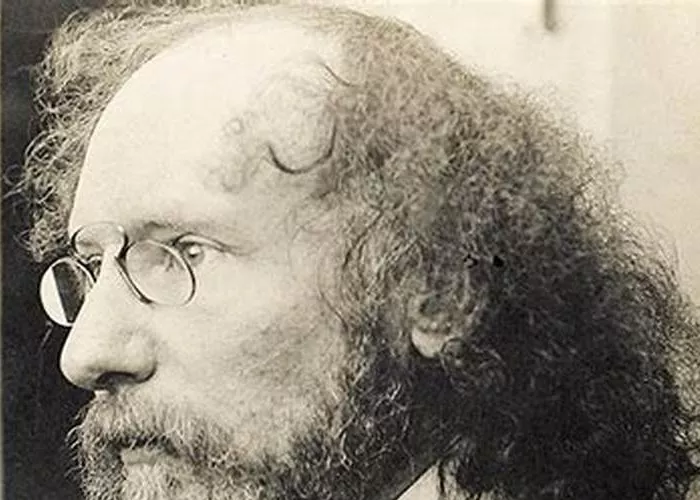Welcome to Poem of the Day – Love by Vyacheslav Ivanovich Ivanov.
Vyacheslav Ivanovich Ivanov (1866–1949), a Russian poet, philosopher, and literary critic, is considered one of the key figures in Russian Symbolism. His poem “Love” delves deeply into the complex and paradoxical nature of human emotion, blending metaphysical and existential themes with an intense lyricism that explores love’s duality—its transcendence and its destructive potential. In analyzing this poem, it is essential to understand both the philosophical underpinnings of Ivanov’s work and the symbolism embedded within the text.
Love Poem
We are two trunks ignited by lightning
Two flames in the midnight forest;
We are two meteors flying in the night,
The double-stinging arrow of a single fate!
We are two horses whose reins are held
By the same hand, – bitten by one spur;
We are two eyes of a single gaze,
Two trembling wings of one dream.
We are a pair of shadows grieving
Over the holy marble grave,
Where ancient Beauty slumbers.
The two-voiced mouth of secrets shared,
We two make a single Sphinx.
The two arms of a single cross.
The Nature of Love: Transcendence and Destruction
“Love” by Ivanov is not simply a celebration of romantic affection or desire. It represents a metaphysical force that shapes human experience and drives individuals toward a higher, almost spiritual existence. The poem positions love as both a transcendental force and a destructive one, creating a tension between the two. In Ivanov’s worldview, love is not merely an earthly or carnal feeling, but a divine, cosmic force capable of leading individuals to enlightenment and self-destruction in equal measure.
At the beginning of the poem, Ivanov presents love as something that defies ordinary understanding. The tone is elevated, almost sacred, with the poet invoking love as a powerful, mysterious force that stands apart from human experience. This concept aligns with the Symbolist notion of the “unmanifest,” the idea that reality is governed by an unseen, symbolic order that transcends material existence.
Love as a Spiritual Calling
One of the key aspects of Ivanov’s “Love” is its connection to the spiritual realm. In his work, love is not bound by temporal and earthly concerns but is linked to the eternal and the divine. In many ways, this poem draws on Platonic and Christian ideas about love. For Ivanov, love is a force that elevates individuals beyond their physical selves. The poet suggests that through love, one can experience a higher form of beauty and truth, something that is accessible only to those who are willing to sacrifice their lower instincts.
This is particularly evident in the recurring motifs of suffering and purification found throughout the poem. Ivanov does not shy away from the darker aspects of love, including its capacity to cause pain. Love, in his view, demands a form of self-surrender that can only be achieved through suffering. The lover’s soul is tested and purified by the experience of love’s challenges, a journey that mirrors the idea of spiritual salvation through trial.
The Paradox of Love: Ecstasy and Torment
Central to Ivanov’s depiction of love is its paradoxical nature. Love, while transcendent, is also inherently destructive. This duality is evident throughout the poem as the speaker oscillates between the bliss of divine union and the torment of unattainable desire. Ivanov’s portrayal of love is grounded in the notion that the very act of loving brings suffering—suffering that is inevitable but also redemptive.
This tension between ecstasy and torment mirrors Ivanov’s broader literary and philosophical concerns. Like many Symbolists, Ivanov believed that art, in all its forms, is a means to reconcile opposites—light and dark, joy and sorrow, life and death. In “Love,” the poet grapples with this reconciliation by presenting love as a force that simultaneously brings both fulfillment and anguish.
Symbolism and Metaphor
As a Symbolist poet, Ivanov employs rich metaphorical language to convey the ineffable quality of love. The imagery in the poem is dense and multi-layered, invoking both personal and universal experiences of love. Through his use of symbolism, Ivanov attempts to communicate something that lies beyond the capacity of literal language.
For example, Ivanov frequently employs imagery of light and darkness, purity and corruption, to illustrate the transformative power of love. The juxtaposition of these elements reflects the duality of love itself—its capacity to elevate while also destroying. The contrast between light and darkness also emphasizes love’s dual role in the human soul: it is both a source of illumination and a force that can lead one into shadowy depths.
Conclusion
In “Love,” Vyacheslav Ivanov explores the depths of human emotion with both clarity and complexity, capturing the profound contradictions inherent in love. The poem is not merely about romantic desire but is a philosophical meditation on love as a transformative and transcendent force that shapes the human experience. Through its vivid symbolism and intense metaphysical themes, “Love” reveals Ivanov’s understanding of love as both divine and destructive, transcendent and deeply human. The paradoxes contained within the poem speak to the inherent tensions of love itself—its ability to lift the soul to higher realms while also breaking it apart.
Ultimately, Ivanov’s “Love” invites readers to embrace the fullness of human experience, accepting both the ecstasy and the agony that come with the act of loving. It challenges us to confront the complexity of this emotion, offering no easy answers but instead urging us toward a deeper, more spiritual understanding of love’s transformative power.

